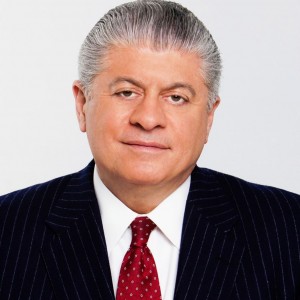This week the Supreme Court will begin the process of deciding if the president can impose a sales tax on products and services which originate in foreign countries and are purchased in the United States. The president calls these taxes tariffs.
Tariffs are nearly as old as the republic and when imposed by Congress — as they have been going back to the presidency of Thomas Jefferson — are clearly constitutional. Yet the questions before the court ask if Congress delegated away to the president the power to tax, and if it did, was that delegation constitutional?
The Department of Justice argues that both of those questions should be answered in the affirmative. However, if the court concludes that Congress never gave its taxing powers to the president, then it needn’t reach the second question. It should answer both questions in the negative as there is simply no statute in which Congress has authorized the president to impose tariffs on his own, and under the Constitution, only Congress may impose taxes.
The DOJ argues that the National Emergencies Act of 1976 and the International Emergency Economic Powers Act of 1977 permit the president to address emergencies, and one of the tools of addressing emergencies is to impose tariffs. Does the United States currently have an economic emergency? The president says that the imbalance of trade — American industry and consumers buying more from foreigners than American industry sells to them — is somehow an emergency. It is not. We have had an imbalance of trade since 1934. Moreover, neither of the statutes upon which the president relies for authority to impose tariffs even mentions tariffs by name or implication.
The imbalance of trade is not an emergency under federal law. Not only has it existed continuously since the Great Depression, but federal law defines an emergency as a sudden and unexpected event — like a surprise military attack or a hurricane — that adversely affects the national economy.
If you use up your line of credit on one of your credit cards and you owe more than you currently have in your checking account, that is the functional equivalent of a personal imbalance of trade. Is that the fault of the folks from whom you purchased your goods? Should they be punished or taxed for selling you what you want to buy? Of course not.
Clearly, a state of affairs that has existed for 90 years is not sudden or unexpected. It is also a matter of basic economics that owing more than you have on hand is simply not the fault of the folks to whom you owe it. Nor is it necessarily a bad thing or one which begs for government remediation.
It is historically accurate that tariffs have been and can be used in economic emergencies, but they must be used by Congress. The very first power delegated by the Constitution to the Congress is the power to tax. Because the Congress gave powers to the president to address emergencies, he has assumed that among them is power to tax. But taxation is a core function of Congress — meaning it is expressly granted to Congress in the Constitution — and we know from Supreme Court jurisprudence that core functions cannot be delegated away.
The Congress can no more delegate to the president the power to tax than it can the power to prescribe punishments for federal crimes. And the president can no more exercise the taxing power than he can delegate to the chief justice the power to be the commander in chief of the armed forces.
These powers — Congress enacts federal laws and declares war, the president enforces the laws Congress has enacted and wages war, the courts interpret the laws and the Constitution — are intentionally and uniquely circumscribed and rather precisely assigned to each of the three branches. This circumscription and these assignments are collectively called the separation of powers.
Powers in the federal government are separated not to enhance the hegemony of each branch but to prevent the accumulation of excessive power in one branch at the expense of either of the other two, and thereby diminishing the ability of the other two to check the one that has excessive power; and thus, threatening personal liberty.
Stated differently, James Madison, the scrivener of the Constitution, intentionally crafted “jealousy” — his word — between and among the branches. It was his intention that jealousy would serve as a check on the accumulation of too much power in one of the branches. His goal was the maintenance of limited government thereby assuring maximum personal freedom.
An example of this is war. Under the Constitution, only Congress can declare war and only the president can wage war. If Congress were to delegate away to the president — or if the president were to seize from Congress while it slept — the power to declare war, then he’d enjoy the power to declare and to wage war. That would make him akin to British monarchs before the ascendancy of Parliament — an evil Madison sought mightily to prevent.
Where does all this leave us?
In a democracy, the people are entitled to expect that the folks they have elected will follow the Constitution. But presidents and congresses have continually sought to expand their powers beyond the limits of the Constitution.
Madison understood that government is the negation of liberty, and thus its powers must be carefully circumscribed. Yet, when government — here the president — does something that is clearly beyond his constitutional authority and affects us all, it is the duty of the courts to correct him.
The whole purpose of an unelected life-tenured judiciary is to be anti-democratic; to restrain the unlawful impulses and extra-constitutional behavior of the popular branches of government. If any time ever called for that restraint, it is now.
To learn more about Judge Andrew Napolitano, visit https://JudgeNap.com.



